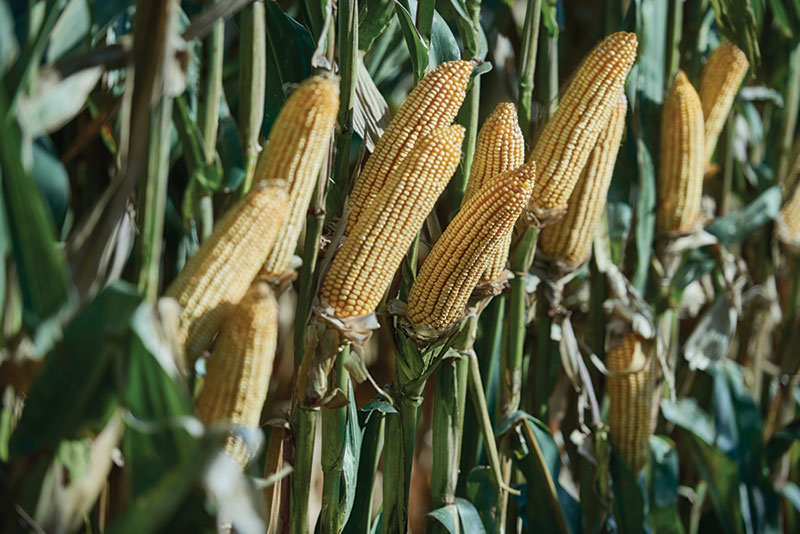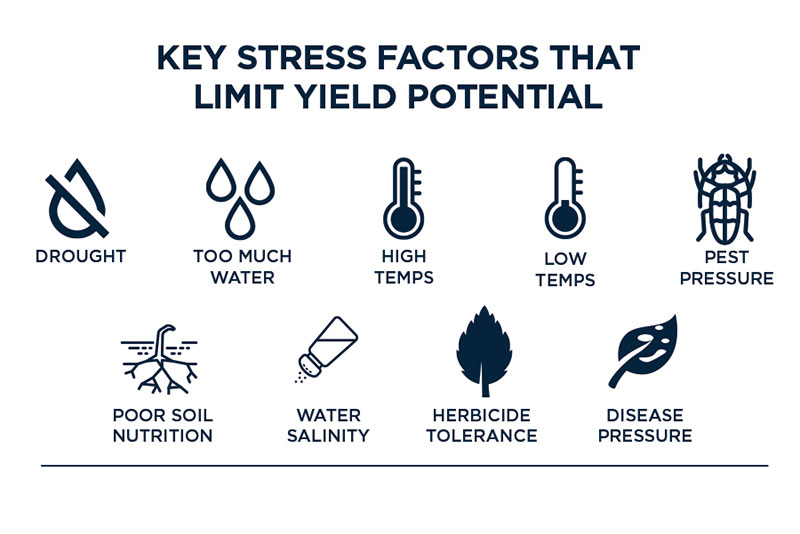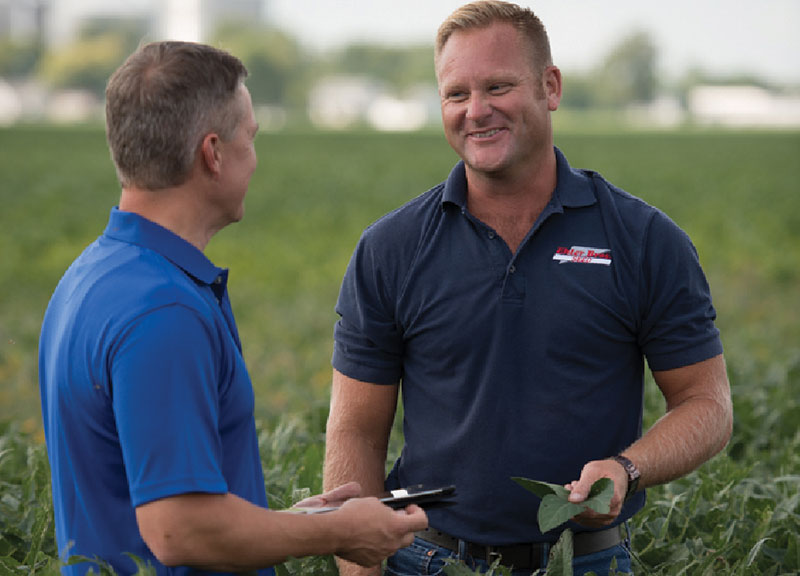Top Growers RevealFive Secrets to Reducing Crop Stress for Bin Bustin’ Yield

Yield potential can drop for a variety of reasons, but you can maximize your yield by knowing the most effective and efficient ways to manage stress throughout the season.
Growers know that from the moment seed goes into the ground, yield potential begins to drop. And it’s no wonder. So many stress variables can affect that seed and plant from the get-go: from cold and damp soils to diseases and fungi just waiting for seed to hit the furrow.

Crops can come under stress in a number of ways during the season. Keeping these top stress factors in mind can help growers get out in front of stress before it affects the crop.
Plant stress can be a limiting factor in yield potential. In fact, researchers estimate that more than 50 percent of potential yield is lost due to stress. Today’s top growers are addressing stress factors head-on to get the most from their crops. These growers shared some of their secrets to success, giving you the five best ways to keep crop stress to a minimum.
SUCCESS AGAINST STRESS #1:
Proper Fertility
Brian Adams, agronomist with Volunteer Ag in Jackson, Tenn., is all too familiar with the kinds of stress that affect corn and soybeans in the Mid-South. Topping the list: heat stress. “Long, hot summers without adequate rainfall can put a real hurt on our crops,” he stated. “That’s why I believe making sure we provide proper fertility up front makes a huge difference.” For Adams, this means adequate fertilizer and micronutrients for strong root systems and strong plant emergence.
SUCCESS AGAINST STRESS #2: Stay Ahead of Stress
Anticipating plant stress is key. “If we’ve already seen stress within the plant, then we have lost yield potential and we’ve messed up on our end,” said Casey Hook, Successful Farming’s 2017 Up and Comer Farmer from Lake City, Ark. “Everything we do is based on stress on the plant. If that plant is stressed, then it’s not getting what it needs.” For Hook, that means making trips across the field to evaluate plant needs. “I’m looking at fruit retention and bolls on cotton. I’m looking for pods and pod numbers and how that’s going to affect my yield,” he stated. “When we see a problem in the field, we’re jumping on it within minutes, not hours.”
SUCCESS AGAINST STRESS #3: Apply Products at the Right Time
“I think that the old saying ‘timing is everything’ is very true when it comes to foliar products and hormone products,” said Champaign, Ill., consultant and farmer Kris Ehler. “Timing is very crucial, and we spend a lot of time with our growers in the field, knowing what’s going on at that specific moment and how we should react.”
With soybeans, Ehler is particularly focused on when the plant moves from the vegetative to reproductive stage. “We want as many flowers and as much pod potential as we can have on that plant. And then as that plant continues through its reproductive phases (R2, R3), we’re treating it with a fungicide, insecticide and Bio-Forge® Advanced to further increase that plant’s potential,” he stated.
| “In our early planting trials this year, we utilized Bio-Forge® Advanced with the cobalt and molybdenum — in early plant phases, I think that definitely helped. We used that in combination with a stimulant product as well as Harvest More® Urea Mate. We put that on in V4, knowing that the plant is under its own root power to scavenge for nutrients and optimize its growth in the vegetative states.” – Kris Ehler |

Retailer and grower Kris Ehler talks with his Stoller sales rep on his farm in Thomasboro, Ill.
SUCCESS AGAINST STRESS #4: When the Heat Is On
Late summer heat and drought can send yield potential plummeting. Successful growers are constantly monitoring fields, applying water and providing plants with extra energy and protection.

High summer heat and drought can threaten soybean yields without the right mix of applications to create a comfortable growing environment.
Mike Gaul, who farms 1800 acres near Strawberry Point, Iowa, knows all about late-season heat. “Around here, we can have really high temperatures, both day and night, starting about the first of July,” he stated. “At the V10–V12 stage in corn, we start applying Stoller® products for that extra boost.”
Casey Hook agrees that summer heat stresses plants. “We’re trying to make that plant feel comfortable and make it feel like it’s 86 degrees instead of 106,” he remarked. “And Bio-Forge will definitely help you do that because it relieves stress within the plant, making for better growing conditions.”
SUCCESS AGAINST STRESS #5 – No Reason to Stress about Yield
According to Kris Ehler, “There are three key aspects to a growing season: 1) getting that plant out of the ground, 2) getting it to grow and 3) taking it to yield.” He continued, “In the past, a lot of growers have been complacent and have just planted and took it to yield. Whether it’s soybeans or corn, we break it down into getting that plant out of the ground, getting it to grow throughout the growing season and then actually taking it to yield.”
Utilizing products from Stoller such as X-Cyte™ and Sugar Mover® will optimize a plant’s performance along the way. Whether it’s root growth or vegetative growth, flowering and/or kernel set, Stoller products help growers get harvestable yield.
“The key is finishing out soybeans and putting seed weight into it,” says Ehler. “When it comes down to finishing and getting the seed size and weight, that’s where a lot of growers struggle. We’ve utilized Sugar Mover in multiple reproductive phases from R2 and beyond. Growers recognize that once they’ve made their R2, R3 fungicide and insecticide application, there is still room for growth.”
Staying out front and staying with the crop full-season keeps these top growers ahead of the pack. “I recommend growers be more proactive, not reactive when it comes to crop stress,” states Brian Adams. “We can’t always anticipate upcoming stress, whether drought or too much rain, heat or insects. However, being watchful and ready can make a world of difference.”
For more information on managing crop stress with Stoller products, visit StollerUSA.com or contact your Stoller representative.
